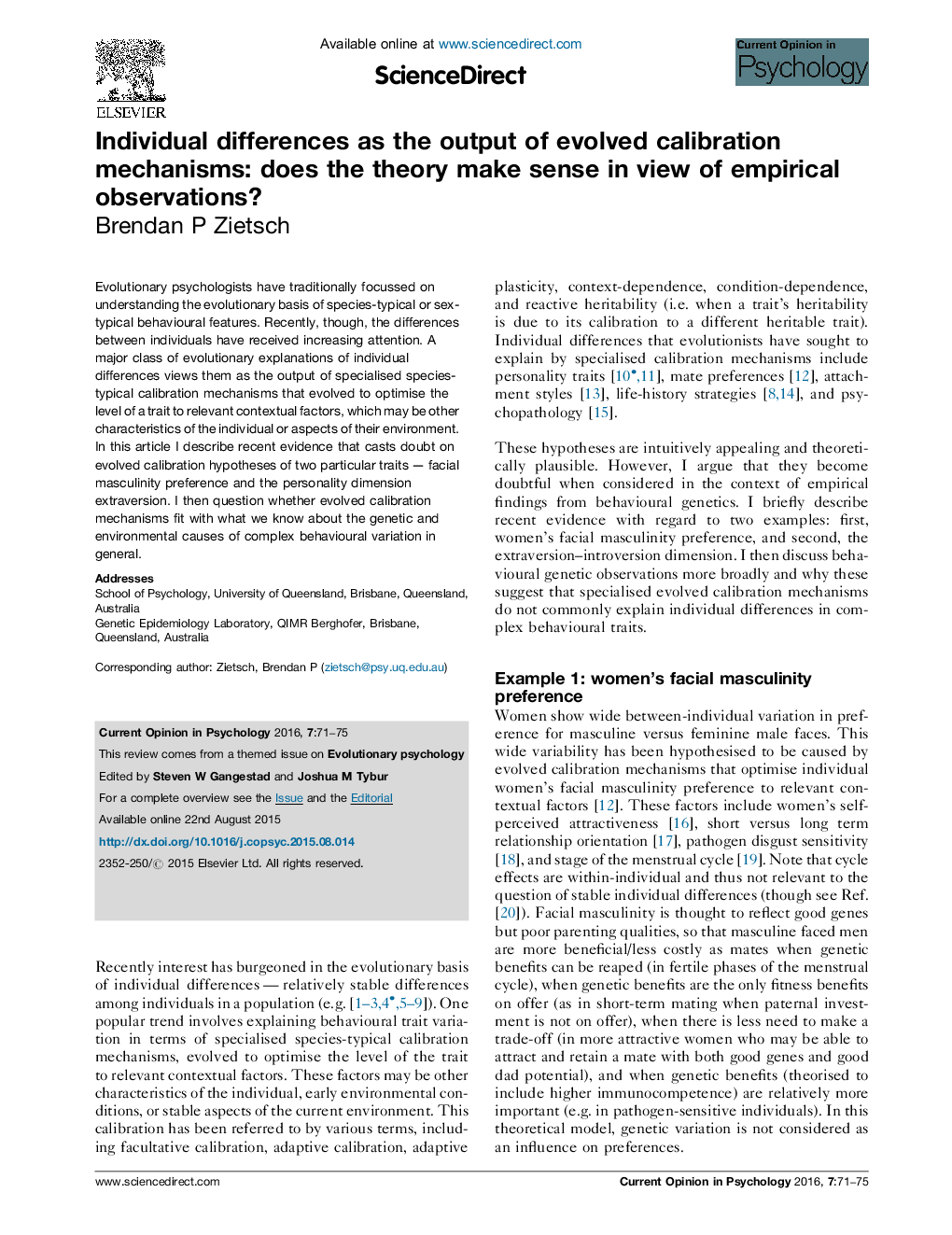| کد مقاله | کد نشریه | سال انتشار | مقاله انگلیسی | نسخه تمام متن |
|---|---|---|---|---|
| 879358 | 1471322 | 2016 | 5 صفحه PDF | دانلود رایگان |
• Understanding individual differences is a major challenge for evolutionary psychologists.
• Many argue that individual differences result from calibration of traits to contexts.
• Unequivocal evidence for such calibration mechanisms is lacking.
• There is evidence inconsistent with proposed calibration mechanisms.
• Evolved calibration mechanisms do not explain large portions of trait variation.
Evolutionary psychologists have traditionally focussed on understanding the evolutionary basis of species-typical or sex-typical behavioural features. Recently, though, the differences between individuals have received increasing attention. A major class of evolutionary explanations of individual differences views them as the output of specialised species-typical calibration mechanisms that evolved to optimise the level of a trait to relevant contextual factors, which may be other characteristics of the individual or aspects of their environment. In this article I describe recent evidence that casts doubt on evolved calibration hypotheses of two particular traits — facial masculinity preference and the personality dimension extraversion. I then question whether evolved calibration mechanisms fit with what we know about the genetic and environmental causes of complex behavioural variation in general.
Journal: Current Opinion in Psychology - Volume 7, February 2016, Pages 71–75
